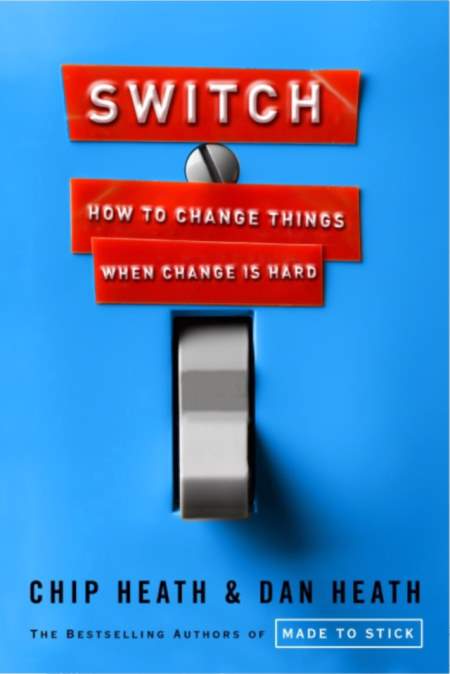If you’re feeling distracted, you’re not alone. We’re surrounded by technologies that compete for our attention by hijacking, triggering and teasing the body’s dopamine system. Dopamine is a neuromodulator described as the brain’s molecule of pursuit. It’s the essence of our motivation—the chemical agent that gets us up and out of bed in the morning. We can’t survive without it, and our cave-dwelling ancestors evolved thanks to their ability to tune into their cravings, search for new food sources or more clever mates, and to adapt their pursuits to ever-changing conditions all along the way.
The modern brain hasn’t caught up with the highly complex environment in which we find ourselves. Everywhere we turn, we encounter distractions—which neuroscientist Adam Gazzaley defines as “goal-irrelevant information that we either encounter in our external surroundings or generate internally within our minds.”
And yet focus matters. What you focus on is what fills your days, and, ultimately, creates your life. Maintaining focus in a busy world means caring for and conserving our capacities to stay present and attuned, and working with the dopamine pathways and our own physiology to support getting what we want most. Here, suggestions from top neuroscientists and experts to help keep you on track.
Quality counts.
The way we talk about the interaction between the human dopamine system and technology is misleading. Suggesting that social media posts give us a “dopamine hit”—makes the relationship sound generative, like we gain something through the interaction. But instead, whenever we get excited by what we see, a bit of dopamine is released from our synaptic vesicles.
So each buzzy interaction with your phone actually depletes your dopamine supply. Dopamine is a finite resource, like a currency, popular podcaster and professor of neurobiology at Stanford’s School of Medicine Andrew Huberman has explained. The more you ‘spend,’ the lower your stores. You’ll have to synthesize more dopamine once it’s dipped below baseline, and that takes time. And as anyone who has binge-watched Netflix knows, it doesn’t feel great. Bring discernment to your stimuli, especially around times where your focus is required for bigger, more important ends. When you have a moment of downtime—between meetings, when standing in line or waiting for an Uber—stay away from your phone and allow your stores to refill. Just relax. When you work out, just work out. Give your body a little restoration time.
 Chip Heath & Dan Heath’s latest book.
Chip Heath & Dan Heath’s latest book.
Traffic conditions.
In their superlative book “Switch,” best-selling
authors Chip & Dan Heath describe the effects of cognitive (over)load via a recent study.
Doctors were asked whether in working with an imaginary client they would choose to proceed with a scheduled, painful and hard-to-recover-from surgery upon learning there was a pharmaceutical option they hadn’t tried yet, though their imaginary patient had already explored some pharmaceutical options. Over 47% said they would give the drug a try, selecting the non-invasive option. But when presented with two possibilities to explore—and, presumably, a better chance to avoid surgery—a shocking 28% said they would choose the non-surgical option first. Too much choice is exhausting. We’re asked to make some 35,000 decisions a day, including over 200 on food alone. Doing what you can to lower your cognitive load and ease decision fatigue makes a big difference. Decide what you can in advance (For example, make Tuesday taco night). Keep robust to-do lists and schedules instead of carrying that information in your mind.
Clear channels.
When you sit down to work, crystalizing the clarity of your goals will help your brain optimize its functioning. As Chantel Prat, a professor of Psychology, Neuroscience and Linguis-
tics at the University of Washington, has explained, the prefrontal cortex (the executive function area of your brain) holds fast to goals while the basal ganglia decide which neuro- logical signals to turn up or to turn down accordingly. Basal ganglia “function a lot like the algorithms the social media companies use to decide not only which of your friends’ posts you want to see but also which advertisements and news stories to put in front of you,” Prat wrote. Of course, social media companies have a clear objective—to keep you scrolling and engaging with their app, ads and all. If you don’t know what you’re hoping to accom- plish through your work, then your basal ganglia will have a harder time prioritizing which thoughts and stimuli you should tune into.
Focus trains focus.
Andrew Huberman, who is not only a professor of neurobiology but also of ophthalmology, suggests using vision to help keep distractions at bay. “Focus in the brain is anchored to our visual system,” he has said. “The key is to learn how to focus better visually if you want to bring about higher levels of cognitive or mental focus….” When you narrow your focus, certain neurons trigger the release of the neuromodulator acetylcholine, which brings a cone
 Ginko leaves.
Ginko leaves. of focus to what you’re doing, Huberman explains, helping your mind tune into what’s important and turn out what’s not. You can assist the process by keeping your workspace free from visual distractions and clutter. Keep one browser tab open on your computer screen at a time. And keep your phone out of sight.
Nourishing the Network.
While there’s no substitute for a good night’s sleep and a well-managed, non-distracting work environment, researchers are encouraged by studies that suggest herbal supplements can support neuroplasticity and focus. Researchers believe that herbs like Ginko can affect focus by inhibiting the breakdown of acetylcholine, suggesting that the herb helps increase an ability to focus better longer. At the same time, research indicates that eating foods that are rich in healthy fats and omega-3 fatty acids can help support brilliant brain functioning.
It’s important to remember that beyond the effects that creating focus could have on your work-life and output, research has shown that remaining distracted takes an emotional toll. Researchers Daniel Gilbert and Matthew Killingsworth of Harvard University found that we spend 46.9% of our waking hours not focussed on what we’re doing, but something else and it makes us unhappy. “Mind-wandering is an excellent predictor of people’s happiness,” Killingsworth has said. “In fact, how often our minds leave the present and where they tend to go is a better predictor of our happiness than the activities in which we were engaged.”



